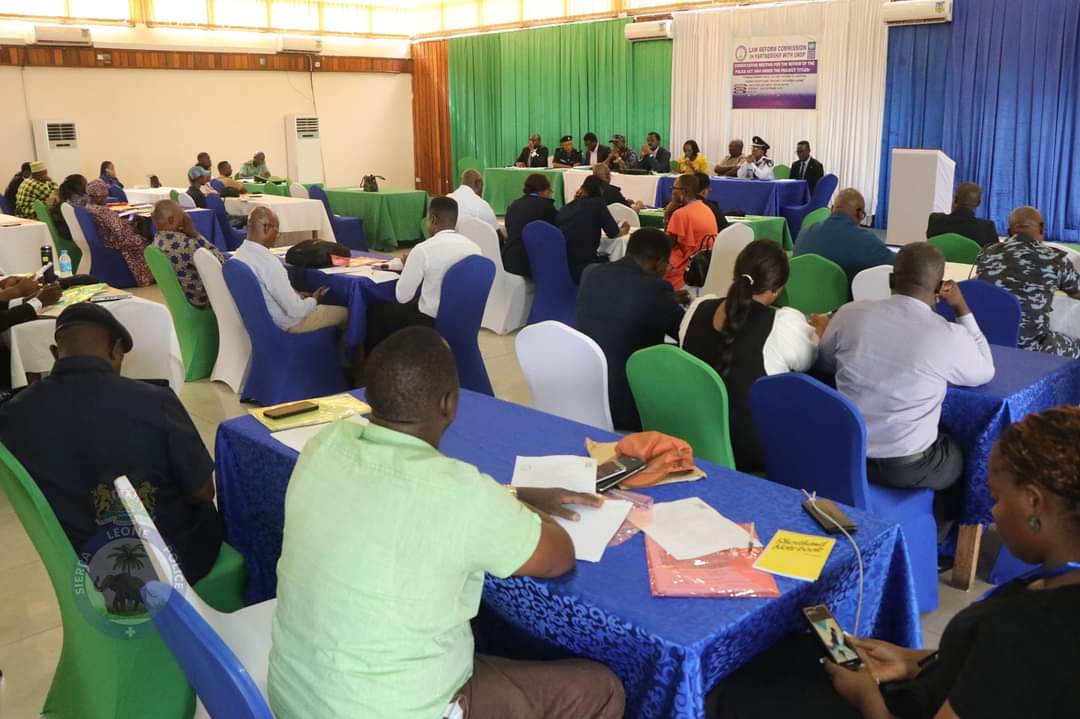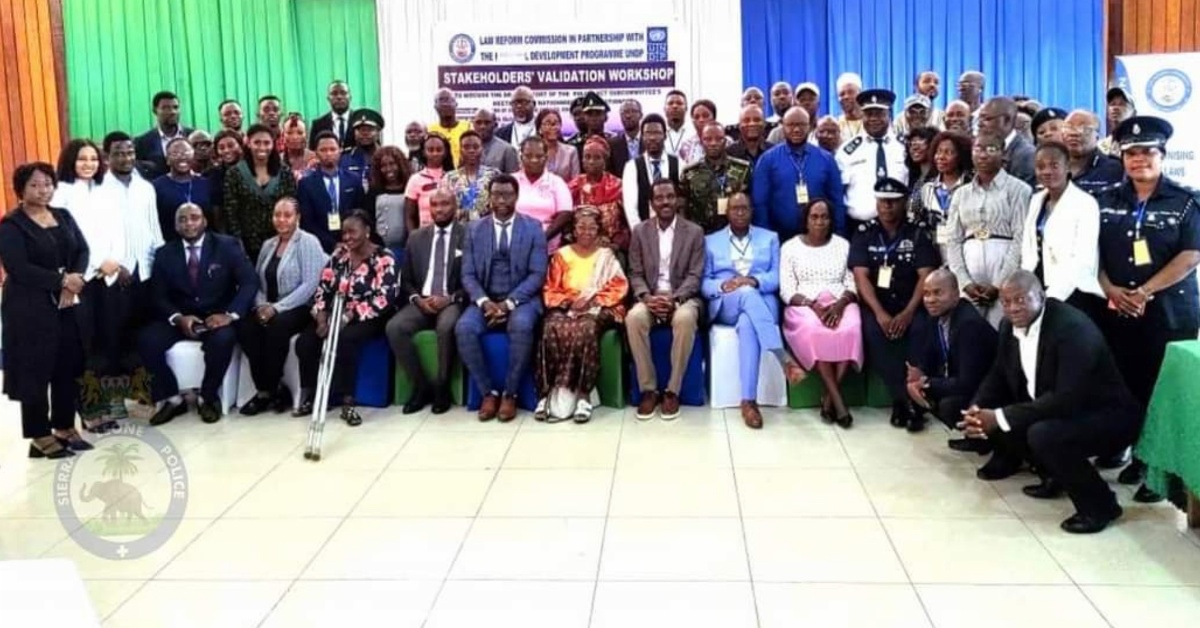The Inspector General of Sierra Leone Police (IGP), William Fayia Sellu has call for a Comprehensive Review of Sierra Leone Police Act.
IGP Sellu made this call as the Act is currently undergoing a review process, as the current act has been in effect for 60 years.
IGP Sellu, addressed the importance of this review at a stakeholders validation workshop organized by the Law Reform Commission at the Bank Complex in Kingtom, Freetown.
During his speech, he expressed optimism about the draft report of the Act, highlighting its significance as a landmark development for the future of the Sierra Leone Police (SLP). “Since the end of our civil conflict, there have been numerous reforms in the SLP, yet none have targeted the Police Act, which is essential for providing operational legitimacy to our institution,” he stated.
The IGP emphasized that the revised Police Act focuses on Local Needs Policing, a variant of Community Policing that seeks to alleviate the burden on the court system. He noted that this approach allows traditional leaders to effectively manage minor offenses within their communities, fostering a collaborative environment for law enforcement.
He also discussed the SLP’s transformative journey from a ‘Force’ to a ‘Service’, underscoring the necessity of adopting a people-centered policing model. “My management has been committed to this transition. It highlights the essence of our reform efforts,” he remarked.
In closing, IGP Sellu expressed gratitude to all partners involved in the transition process.
The workshop featured valuable contributions from Deputy Minister of Justice, Alpha Sesay Esq., and Law Reform Commission Chairman, Yada Hashim Williams Esq. They reiterated the initiative’s goal of strengthening the SLP through a series of four consultative meetings across the nation. The Law Reform Commission, a governmental body focused on legal reforms to advance social justice for all citizens, is steering this initiative.

Deputy Minister Sesay pointed out that reviewing the Police Act is vital for enhancing professionalism and promoting human rights standards, including gender-sensitive policing. He called on all stakeholders to contribute meaningfully to the discourse, emphasizing that the outcome will reflect the well-being of citizens and support the development of the Sierra Leone Police.
Participants engaged in group discussions to provide feedback, suggestions, and recommendations aimed at creating a robust framework for the Police Act. The recommendations were unanimously adopted by attendees, signaling a collective commitment to the reform process.











